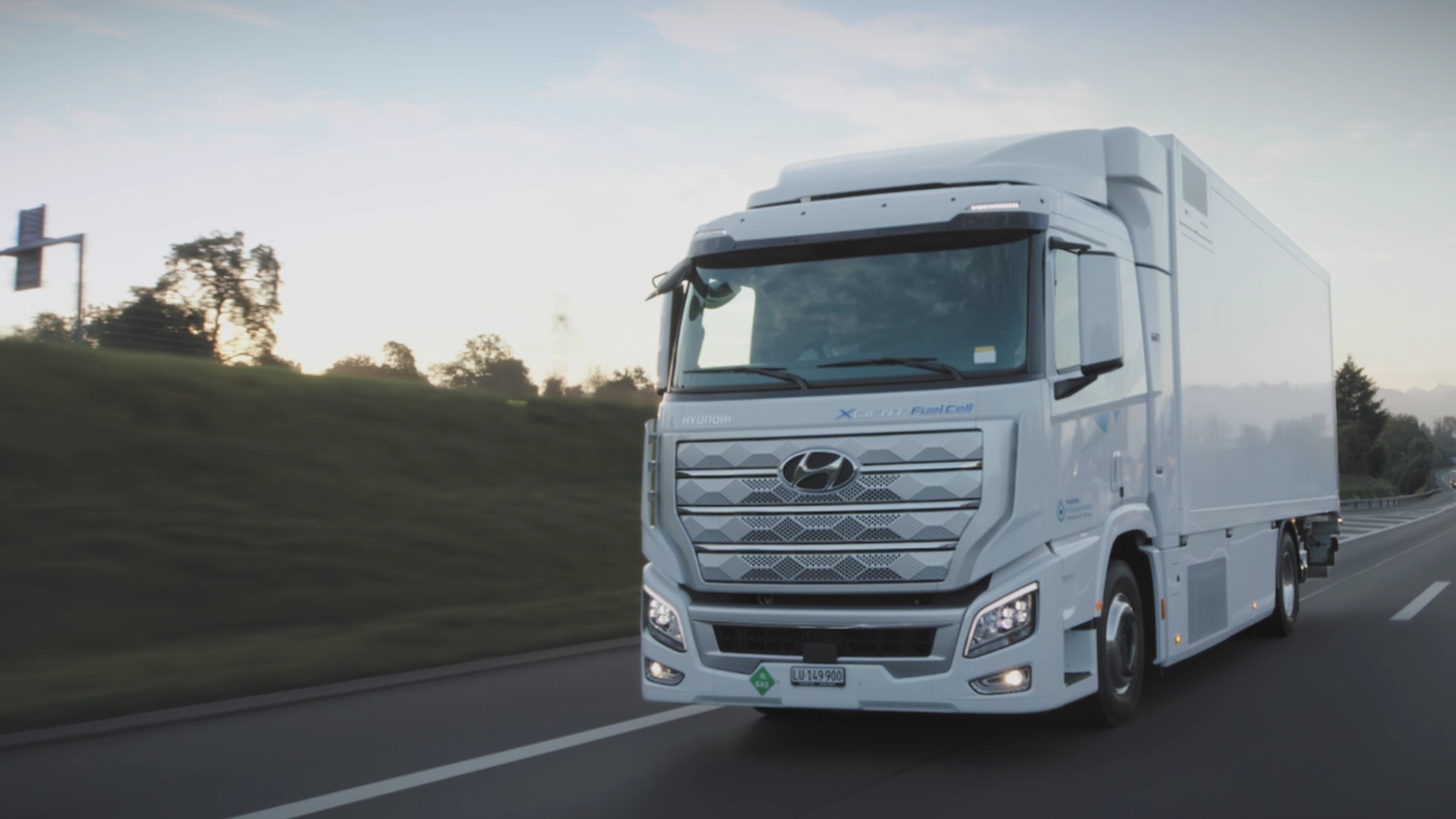Here come the hydrogen trucks
Add Axios as your preferred source to
see more of our stories on Google.

The XCIENT Fuel Cell heavy duty truck. Photo courtesy of Hyundai
Hydrogen-powered heavy trucking is becoming more and more of a thing, even as it's unclear whether fuel cells or battery electrics will ultimately win the long race to decarbonize road freight.
Why it matters: Heavy diesel trucks and industrial vehicles are a huge source of carbon emissions worldwide, and a number of legacy automakers and startups are moving ahead with electric and hydrogen models.
Driving the news: This week is bringing new examples of action on hydrogen trucks that are in development from a suite of companies.
- Hyundai on late Monday teased the upcoming launch of its XCIENT Fuel Cell (see the photo above), which it's calling the "world's first mass-produced fuel cell heavy-duty truck."
- Toyota and its subsidiary Hino yesterday said they're developing a fuel cell heavy truck for the North American market, with a demonstration model arriving in the first half of 2021.
The intrigue: It's not just semitrucks either.
- For instance, "France’s 250 ski resorts will switch to hydrogen-powered snow-grooming machinery as they seek to make good on a pledge to cut direct CO2 emissions to zero by 2037," Bloomberg reported Friday.
The big picture: The new hydrogen models come as battery electric trucks are moving ahead as well.
- "[T]he hydrogen truck market is less advanced than that for electric trucks, primarily because of the need for extensive infrastructure to produce and distribute hydrogen," notes a new Brookings Institution analysis on options for decarbonizing heavy transport.
- Heavy electric vehicles from companies including Daimler and Volvo are already being deployed. This New York Times piece explores pilot programs at ports in southern California, while Tesla has a closely watched electric semi in development.
By the numbers: Getting back to Hyundai, they haven't released detailed info yet, but said the new truck is "equipped with a 350-bar 32-kg hydrogen tank that provides around 400 km of driving range with a full trailer in tow."
- They said refueling takes 20 minutes or less and that the vehicle can carry a load "comparable to a diesel truck."
